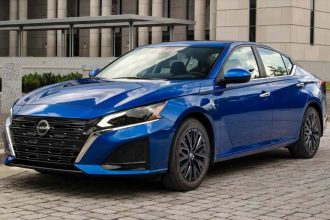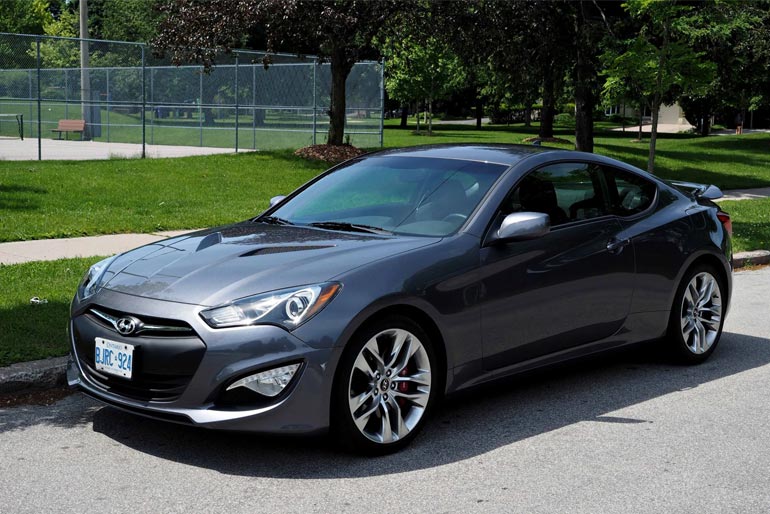The Honda Civic has been around for over 40 years and is one of the most popular and recognizable cars on the road today. From its humble beginnings as a subcompact car to its current status as a highly-rated compact car, the Civic has become synonymous with quality, reliability, and innovation. But owning a car is more than just driving it; it’s also about keeping track of its history and maintenance. That’s why Honda VIN lookup is an important tool for any Civic owner.
What is a VIN?
First, let’s talk about what a VIN is. A vehicle identification number, or VIN, is a unique code assigned to every car that provides detailed information about the vehicle’s make, model, year, country of origin, and more. Think of it as a car’s social security number; it’s how you can identify a car and keep track of its history. You can usually find the VIN on the dashboard or driver’s side door jamb.
Why is Honda VIN Lookup Important?
Now that you know what a VIN is, let’s talk about why Honda VIN lookup is important. It’s a simple way to access detailed information about your car’s history and maintenance, which can be essential for ensuring its safety, reliability, and longevity. Here are some of the benefits of using Honda VIN lookup:
- Recall Information – Honda VIN lookup can provide information on any recalls that your car may be affected by. This information can help you stay safe and ensure that your car is up to date with any necessary repairs.
- Maintenance Schedule – Honda VIN lookup can also provide you with a detailed maintenance schedule for your car. This schedule can help you stay on top of regular maintenance, such as oil changes and tire rotations, to keep your car running smoothly.
- Warranty Information – If your car is still under warranty, Honda VIN lookup can provide you with information on the coverage and expiration date of your warranty.
- Accident History – Honda VIN lookup can also provide information on any accidents that your car has been involved in. This information can be useful when buying or selling a car, as it can give you a better idea of the car’s history and condition.
The Evolution of the Honda Civic
Now that we’ve discussed the importance of the Honda VIN lookup, let’s take a closer look at the Honda Civic and how it has evolved over the years.
The Early Years: 1970s and 1980s
The Honda Civic was first introduced in 1972 as a subcompact car. At the time, the American auto industry was struggling to produce vehicles that were both fuel-efficient and environmentally friendly. The Civic was a game-changer, offering a small, efficient engine that delivered impressive gas mileage without sacrificing performance. It was also a car that was built to last, with a reputation for reliability that quickly earned it a loyal following.
Throughout the 1970s and 1980s, the Honda Civic continued to evolve, with each new generation bringing new improvements and innovations. The second-generation Civic, which was introduced in 1980, featured a more spacious interior and improved fuel efficiency. The third-generation Civic, which debuted in 1984, was the first to feature a four-wheel double-wishbone suspension system, which improved handling and ride quality.
The Civic Goes Mainstream: 1990s and 2000s
In the 1990s and 2000s, the Honda Civic became more mainstream, appealing to a broader audience. The fourth-generation Civic, which was introduced in 1988, featured a more aerodynamic design and a larger engine. The fifth-generation Civic, which debuted in 1992, was larger still and offered more amenities, including power windows, air conditioning, and an upgraded sound system.
The sixth-generation Civic, introduced in 1996, featured a more streamlined design, with a lower hood and a more aggressive stance. It was also the first Civic to offer side airbags and antilock brakes as standard features. In 2001, the seventh-generation Civic debuted, featuring an even more aerodynamic design and a more powerful engine. It was also the first Civic to offer a continuously variable transmission (CVT).
The Civic Goes Green: 2010s and Beyond
In the 2010s, the Honda Civic became even more environmentally friendly, with the introduction of hybrid and natural gas-powered models. The eighth-generation Civic, which was introduced in 2006, was the first to offer a hybrid model, which delivered impressive fuel efficiency without sacrificing performance. The ninth-generation Civic, introduced in 2011, featured a more spacious interior and a more efficient engine.
In 2016, the tenth-generation Civic was introduced, with a completely redesigned exterior and interior. It offered a more powerful and efficient engine, as well as a range of advanced safety features, including lane departure warning and forward collision warning. It was also the first Civic to offer Apple CarPlay and Android Auto integration.
The Honda Civic continues to be a popular choice for car buyers, thanks to its reputation for quality, reliability, and innovation. It has become a car that defines a generation, appealing to a wide range of drivers, from first-time car buyers to families to eco-conscious consumers.
Conclusion
The Honda Civic has come a long way since its debut in 1972, evolving with each new generation to meet the changing needs of drivers. It has become a car that defines a generation, with a reputation for quality, reliability, and innovation. But owning a car is more than just driving it; it’s also about keeping track of its history and maintenance. That’s why Honda VIN lookup is such an important tool for any Civic owner. By accessing detailed information about your car’s history and maintenance, you can ensure its safety, reliability, and longevity for years to come.







